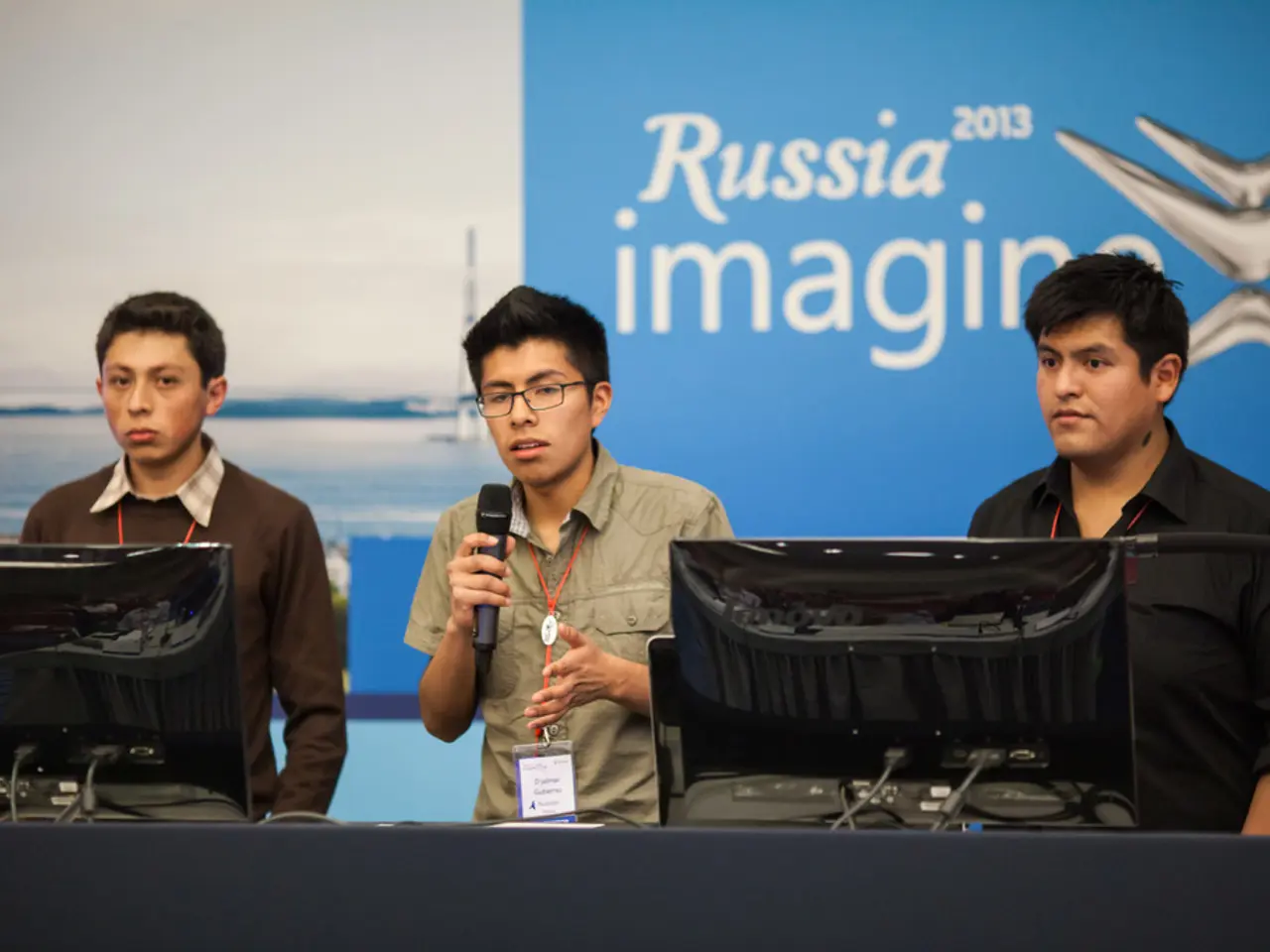Unachievable at the moment: Digital Self-Governance for Germany - Germany's digital independence remains elusive
In a bid to bolster its digital sovereignty, Germany is taking a multi-faceted approach to enhancing cybersecurity, particularly in the areas of cloud solutions, AI models, and foreign tech products.
Building a Domestic Technology Stack and AI “Gigafactory”
The German government plans to invest heavily in AI and cloud computing to foster a "Made in Germany" AI ecosystem. This includes the establishment of at least one European AI “gigafactory” within Germany, with the aim of reducing dependence on foreign AI providers and cloud infrastructure.
Supporting European Initiatives like Gaia-X
Gaia-X, a major European project, seeks to create a federated, transparent, open-source cloud ecosystem that enhances digital sovereignty by offering a decentralized alternative to American and Chinese cloud dominance. While still in its early stages, Gaia-X underpins Germany’s cloud sovereignty efforts.
Regulatory Frameworks and Certifications
Germany is rigorously applying EU regulations such as the GDPR and the upcoming EU AI Act for responsible AI use, and the EU Cybersecurity Certification Scheme for cloud services (EUCS) is anticipated to play a role in securing cloud sovereignty. Germany also follows its own cybersecurity policies updated through 2026, focusing on proactive defenses aligned with these European standards.
Promoting Quantum-Ready and AI-Driven Cybersecurity
The cybersecurity market in Germany is rapidly growing, with AI-driven, quantum-resistant solutions employed by firms like Utimaco and Qualysec for compliance and threat detection. This emphasis on cutting-edge technologies strengthens Germany’s defense capabilities and sovereignty in cybersecurity.
Addressing Dependence on Foreign Software and Technologies
Many German companies rely heavily on US software, but efforts are being made to improve the awareness, performance parity, and data sovereignty guarantees of European products to increase adoption. This includes ensuring data storage within the EU.
International Collaboration with Strategic Allies
While pushing for greater independence, Germany also collaborates with countries like the US on AI-enabled cyber defense to counter shared threats from Russia and China. Such cooperation supports building robust AI cyberdefense capabilities while maintaining strategic autonomy.
The Role of the BSI
The BSI, the central government agency for IT security in Germany, is responsible for ensuring the security of AI models and cloud solutions. The BSI is focusing on building in as many control mechanisms as possible due to Germany's current inability to use digital systems and data without input from outside Europe. The BSI is also developing a strategy for deciding which technologies to buy from abroad and how to gain a certain level of control over them.
However, challenges remain. The BSI is responsible for ensuring the security of AI models in Germany, but the regulations for distributing these tasks are currently being worked out by the federal government. The BSI chief warns of the time factor given the current pace of AI development and emphasizes that rules for secure AI use should not block innovations.
The BSI-Google agreement signed in Q1 2023 to support the development and provision of secure cloud solutions for federal, state, and local authorities has faced harsh criticism. The Society for Computer Science argued that it gives the US government additional leverage. The BSI advises companies not to input security-relevant data and to adjust privacy settings to prevent "shadow AI" from intervening too far.
In summary, Germany’s digital sovereignty strategy in cybersecurity fuses investment in domestic AI/cloud infrastructure, EU-wide regulatory and infrastructural initiatives like Gaia-X, promotion of quantum-ready AI cybersecurity technologies, efforts to substitute foreign tech products with competitive European ones, and strategic international cooperation—all aimed at bolstering resilience and control over critical digital assets.
Read also:
- Health Risk Warning: The Harmful Effects of Sitting Too Much, Exploring Sedentary Lifestyles
- Competition heated up: Google Pixel 10 against Samsung Galaxy S25 - a pivotal moment for Google's smartphone dominance
- Advancement from Analog to Digital: A History of Audio Cassettes
- Moves and Changes in the Pro AV Industry: Mergers, Collaborations, and Personal Appointments







